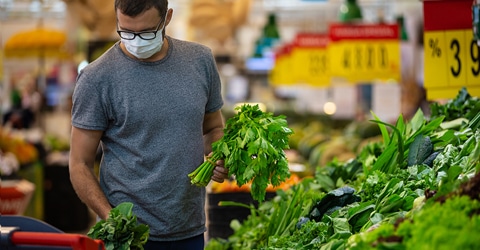

In the early 1980s, I organized and helped lead a comprehensive study of diet, lifestyle, and disease mortality in rural China and eventually Taiwan, to investigate why cancer and other chronic degenerative diseases localized in geographic clusters.
The findings from this study, when combined with experimental studies of cancer in my laboratory and clinical human studies on heart disease, diabetes, chronic kidney disease, and related illnesses by others, showed that a whole-food, plant-based diet could not only prevent but also reverse these diseases.
Within this study in China and Taiwan, we also investigated the virus hepatitis B (HBV), which causes primary liver cancer, a major cause of death in Africa and Asia. We collected data on the prevalence of people having antibodies and antigens, multiple disease mortality rates, and many nutritional risk factors. Relying only on statistically significant findings, HBV antibody prevalence was highly correlated with vegetable consumption, dietary fiber, and plant protein. In short, more plant food consumption was associated with more antibodies.
Among the exceptionally high number of virus strains, each virus creates its own unique symptoms. But they also share something in common. That is, they invade hosts like us, and our immune system, which adapts for each virus strain, mounts a defense, most commonly by custom-making antibodies for each virus strain.
Given that COVID-19 is also a viral disease, is it possible that this same nutrition could help us improve our immune response?
If so, it is a highly desirable solution that we, as individuals, can control.
In our research, we also found that people consuming more animal protein had fewer antibodies, even in those consuming a very low amount of animal protein. We obtained four sets of statistically significant correlations (plant food factors vs. prevalence of antibodies and antigens, animal food consumption and indicators vs. prevalence of antibodies and antigens), and each supported the same conclusion.
I believe that this consistent interplay of nutrition, virus activity, and disease should apply to coronavirus (COVID-19) as well, especially for older individuals compromised by diseases arising from the same nutrition that decreases antibody formation.
Switching to a whole-food, plant-based diet should lessen the severity of disease symptoms while simultaneously increasing COVID-19 antibodies, a win-win effect. Based on other studies, this effect may begin within days, possibly providing enough time for people not yet infected by COVID-19 to strengthen their immunity.
Furthermore, this dietary practice should be maintained because there are recent but unsubstantiated news reports that some people who have been infected may become reinfected. If this is confirmed, it means being prepared and staying prepared.
Even though there is no direct proof, I am quite confident that this nutritional strategy could produce a faster, safer, more comprehensive long-term solution for coping with viral diseases like COVID-19. If everyone did it, we might not need to mask ourselves, avoid physical contact, and wait for new drugs with unpredictable side effects and vaccines likely to be only partially effective, at best, for new viruses. That being unlikely, we, as individuals, could adopt this practice and protect ourselves and our family and friends and, in doing so, take responsibility for our own health. We already have strong scientific evidence that this diet effectively reduces comorbidities associated with severe cases of COVID-19.
I draw my confidence in this suggestion both from the multifaceted evidence on hepatitis B virus cited here and from an abundance of evidence showing the comprehensive effect of whole-food, plant-based nutrition on total health. Although some narrowly focused research studies have shown a beneficial effect of plant nutrients on viruses, a protocol using such candidate chemicals or nutrients is not likely to be effective unless they are part of whole food.
This nutritional makeover could be hugely important, both for its health value and because I sense that we are becoming too accepting of our present limited knowledge as to how to manage future flu seasons and other epidemics. I doubt there are many people who will be content with repeated masking, social distancing, and contact tracing when changing our diet could do so much more, while simultaneously protecting social norms, job security, and our economy.
With each new epidemic, do we really want to wait a year or more to develop drug treatments and vaccines of uncertain efficacy?
Copyright 2024 Center for Nutrition Studies. All rights reserved.